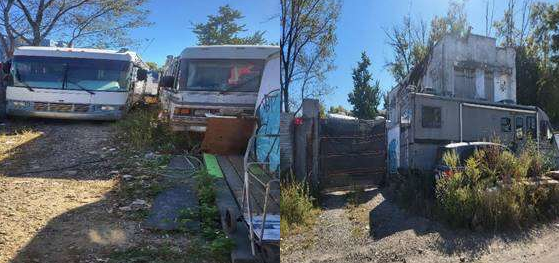Last week, a small park in Windsor Terrace was renamed for a Marine. The Marine was shot by a sniper in Fallujah in 2006. Brooklyn Parks Commissioner Martin Maher, who knew the Marine when they were both younger, said he wasn’t aware of any Brooklyn parks named after veterans of the wars in Iraq or Afghanistan. “We do not take naming parks lightly,” said Maher. So this is the story of a boundary-breaking Marine.
He was Capt. John J. McKenna IV, born on St. Patrick’s Day. He grew up playing roller hockey and touch football in Brooklyn, blocks from the Vanderbilt Street park that now bears his name. Military service was all around him: his grandfathers served in World War II. A close family friend was severely disabled in Vietnam. McKenna loved watching war movies, and became a voracious reader and book collector: he could quote reams of Winston Churchill, he admired Shakespeare. At Binghamton University in the late 90s he majored in history and his dad, also John McKenna, hoped he would become a history teacher. But some Marine recruiters from Syracuse starting paying visits.
“Initially, I thought this might just be a fantasy,” said his father. “But he kept going.”
Sept. 11, 2001 found McKenna with the Second Marine Aircraft Wing at Cherry Point, North Carolina, and soon he was in Afghanistan as part of the fight against the Taliban. His job was to help secure landing bases for planes and helicopters, but he only was in the country for a few months, his father said.
His father remembers that they had a conversation on his birthday, three days before the invasion of Iraq. “Pop, I don’t understand why we’re going,” his father remembers him saying. There are already no-fly zones. They haven’t proven the existence of weapons of mass destruction. “But I’ve gotta go where I’m sent.” He did.
Throughout that campaign, McKenna continued working on landing sites for flying vehicles.
Eventually, he came home and started on the road to become a state trooper, but the armed forces stayed in the background. Also, the wars continued. He became a platoon commander in a reserve unit, and when the unit was deployed he volunteered to go back to Iraq with them, despite his previous tours and his questions.
In his first tours, there were limited opportunities for McKenna to talk to his family back home. A few calls, but mostly McKenna’s father remembers a system in which you could write a message on the computer and the Marines would print it out, and send it to the front. Times change. By his last tour, Marines could make more frequent satellite calls home.
He talked to his family about the “dead-end” lives of the kids he saw playing in the street in Fallujah, and he had his parents send school supplies and candy. He was busy, leading patrols in that dangerous and infamous city, stuck not in the main Fallujah camp but in a more ramshackle one, sharing a small plywood room with another captain. He read, he worked on plans to better safeguard the men under him. He patrolled.
On Aug. 16, 2006, he was on yet another foot patrol with members of his unit. This time, they were ambushed. Sniper rifles, automatic weapons, rocket propelled grenades. One of McKenna’s Marines, Lance Cpl. Michael Glover, was struck in the middle of the street intersection.
Glover, by the way, was a fellow New Yorker, the nephew of FDNY Chief Pete Hayden, a 9/11 commander. According to his Silver Star citation, McKenna ran directly into the center of the intersection, where the fire was heaviest, trying to save Glover. What else would he have done? But McKenna, too, was hit. He was 30. His father said he died instantly.
McKenna’s father was in Brooklyn alone when he found out his son was dead. The family was in the middle of a move upstate. The house was empty except for a mattress on the floor, a clock radio and a lamp. He was just dropping off to sleep when the doorbell rang. There were four Marines on the doorstep. Had he ever thought about that doorbell ringing before it happened? No.
Over the years, there have been various ways that Capt. McKenna has been formally remembered, in packed Brooklyn churches and newspaper articles. The park renaming ceremony on Saturday, 12 years after his death, was well-attended. I found out about it from my father, who taught McKenna English in high school at Bishop Ford in Windsor Terrace. Bishop Ford Central Catholic High School has since shuttered. My father is now retired. McKenna’s beloved book collection has long since been dispersed and donated. Fallujah has fallen into and out of insurgent hands.
The war in Afghanistan where McKenna first fought is ongoing.



































